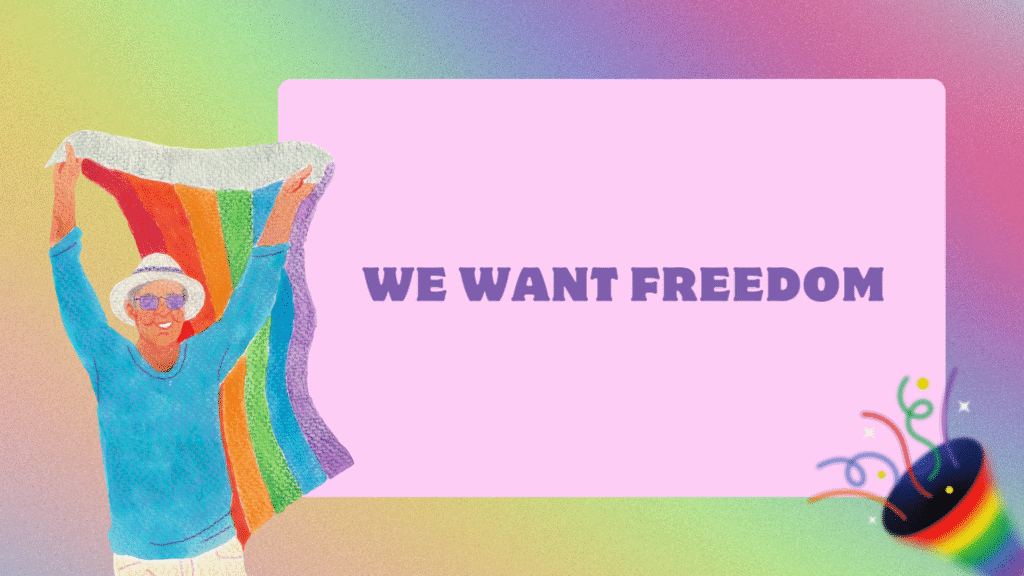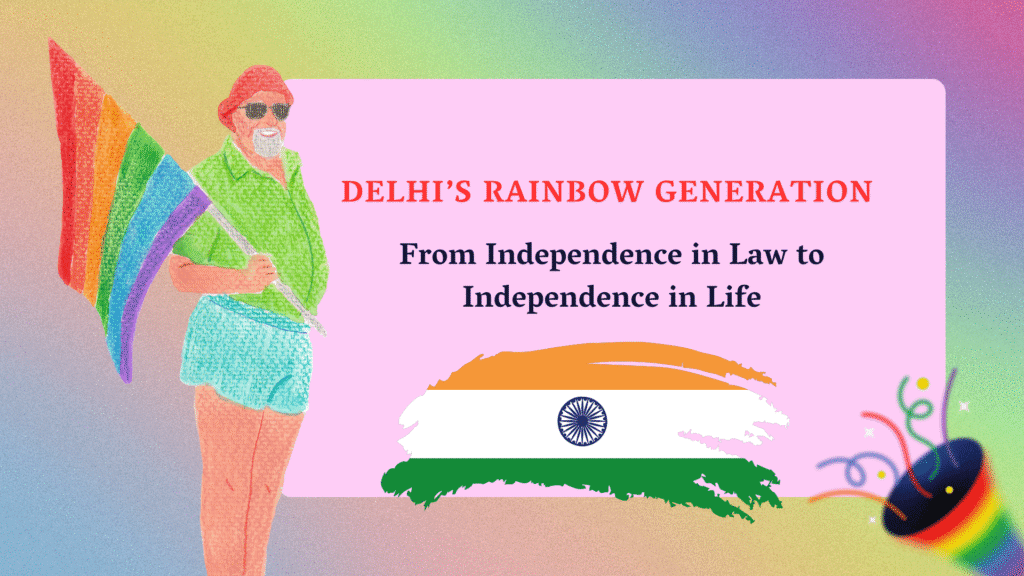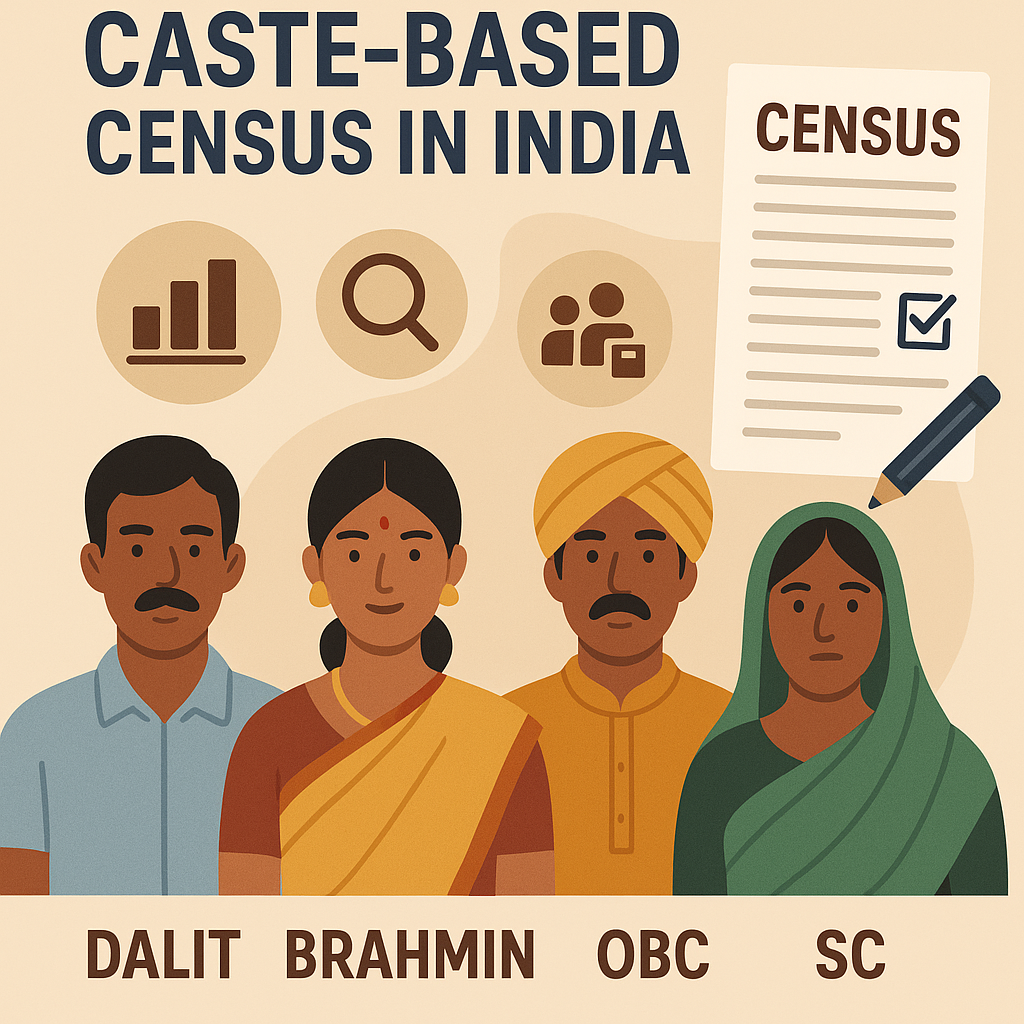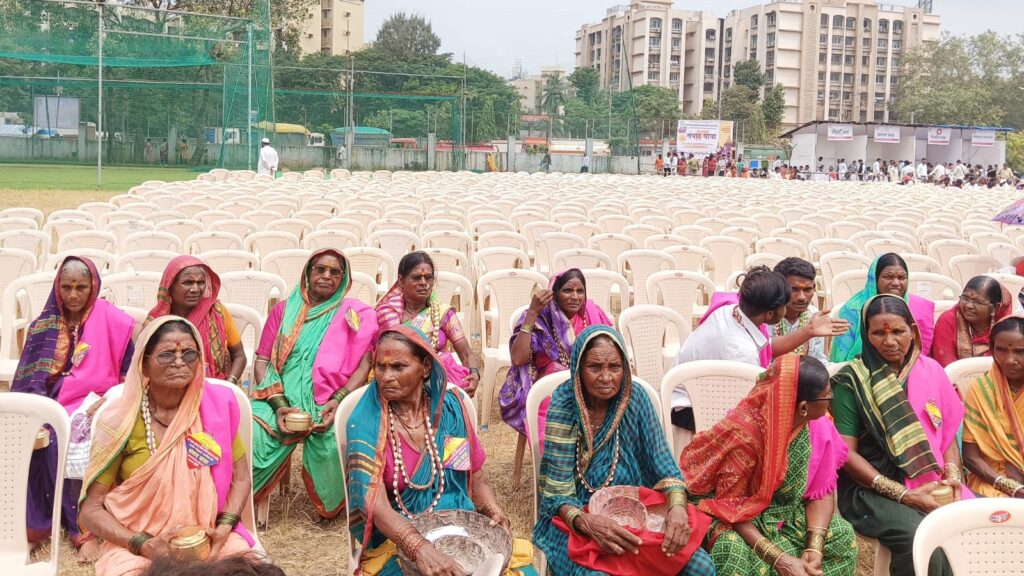Rashi Akanksha | 14th August 2025
As we Indians prepare ourselves to fill the skies with tricolor on this 15th August, India will celebrate its Independence Day. Our leaders will deliver flattering speeches hailing the nation’s progress, and the air will be thick with the narrative of freedom. Freedom from colonial rule which lasted for about 190 years. However, as India prepares to mark its 78th Independence Day, for many LGBTQIA⁺ youth in the capital, independence still feels like an unfinished promise. The colonial-era Section 377 was taken down in 2018, restoring constitutional dignity and privacy for the queer citizens of the country. The Supreme Court’s decision in Navtej Singh Johar v. The Union of India was historic. The 2014 NALSA judgment recognised transgender people as a “third gender,” and the Transgender Persons (Protection of Rights) Act, 2019 outlawed discrimination in education, employment, healthcare, housing, and public services. These were monumental legal wins—yet they left many at the doorway to equality, waiting for institutions to truly open the door.
In July 2025, Delhi finally notified the Delhi Transgender Persons (Protection of Rights) Rules, putting the 2019 Act into effect at the state level. The rules permit self-declaration of gender without medical exams, ensure timely issuance of certificates, require safe zones in schools and workplaces, and create grievance redressal systems and a Transgender Welfare Board. All of this sounds very glittery and gold. On paper, they’re powerful but in reality, they risk becoming another set of hollow bureaucratic assurances if not backed by political will, resources, and accountability. Delhi’s five-year delay in implementing them is a reminder: recognition in law does not guarantee recognition in life. The educational institutes in India, which are the foundational stones, have become a hub of hostility and silence towards the queer students. A document presented by UNESCO shows widespread bullying faced by the LGBTQIA⁺ students across India, often ignored by teachers or dismissed by administrators. In universities, discrimination, exclusion, and the absence of formal grievance systems remains constant. Most educational boards lack explicit anti-bullying policies, leaving students to face daily microaggressions alone.

These aren’t just inconveniences—they have measurable consequences. Studies by the NHRC shows that over 60% of LGBTQIA⁺ respondents across Indian cities report moderate to severe depression. Transgender youth face especially high rates of anxiety and suicidal thoughts. In Delhi, organisations like Nazariya and the Humsafar Trust regularly help young people for trauma linked to their identity, often aggravated by family rejection. Workplaces have a similar story. While the 2019 Act bans discrimination based on gender identity, sexual orientation still isn’t protected by national law. Without inclusion mandates for the private sector, discrimination thrives. Queer employees in Delhi report being outed without consent, denied promotions, or quietly pushed out of jobs.
A 2023 LGBTQIA⁺ employment fair gave some hope—trans man Andy Kashyap , for example, found corporate work after years of street vending—but such moments are exceptions. Stories like that of Andy Kashyap highlight both the remaining barriers and the life-changing potential of opportunity. A transman from Ferozepur, Punjab, Andy once sold momos outside his rented room in Mohali. He earned barely ₹150 a day after facing repeated rejections in the job market. Things changed in 2023 when he attended a job fair in Delhi aimed exclusively at the LGBTQIA⁺ community. Today, he works at a diversity, equity, and inclusion advisory firm, earns a steady income, and mentors other job seekers. His journey from a street stall to a corporate desk shows that the right policy is only part of the solution. Access, acceptance, and inclusion are also essential. Without enforceable diversity rules, grievance channels, and transparent hiring, inclusion is an impossible task.
Healthcare, too, often fails queer youth. Reports about misgendering, treatment refusals, and open hostility from medical staff are a common issue faced by them. Even when it is illegal yet due to absence of training and fear of stigma keeps many from seeking care. The right to health is one of the basic rights, like the right to education or work, yet it remains compromised by prejudice and ignorance. Delhi now has a progressive legal framework —but without active and sustainable implementation, it risks becoming a strong and impactful policy on paper, but in reality, lacks the necessary substance, or enforcement to be effective. The Transgender Welfare Board must be transparent, led by the community, and empowered to hold institutions accountable. District protection cells can’t just exist in notifications; they must be staffed, publicized, and easy to access. Anti-bullying and non-discrimination rules must be mandatory in every school and college, with grievance systems students can trust. Private employers should face binding inclusion requirements, and workplace protections must explicitly cover sexual orientation.
The spirit of August 15 lies in making sure that every citizen can live without fear, speak without shame, and dream without limits. Independence Day is a moment to look back at progress—but for Delhi’s rainbow generation, it’s also a time to confront how far there is still to go. Freedom is not complete when a queer student fears walking into class, when a graduate is denied work for who they are, when a patient is turned away from a hospital, or when a couple’s relationship has no legal standing. True independence means the right to exist without fear, to be seen without conditions, and to participate in society openly. This year, as the tricolor flutters over the capital, progress shouldn’t be measured only by the laws passed or verdicts delivered. Until then, Delhi’s LGBTQIA⁺ youth will remain in a waiting room—free on paper, but not yet free in life.
Rashi Akanksha is a media researcher and writer focusing on gender, sexuality, and social justice in India. Her work examines the gap between legal rights and lived realities, amplifying the voices of marginalized communities.



